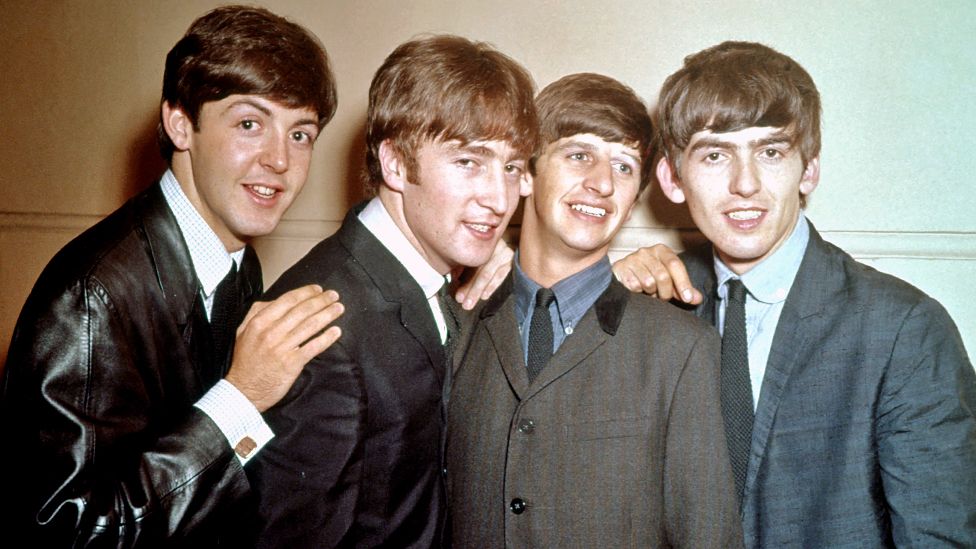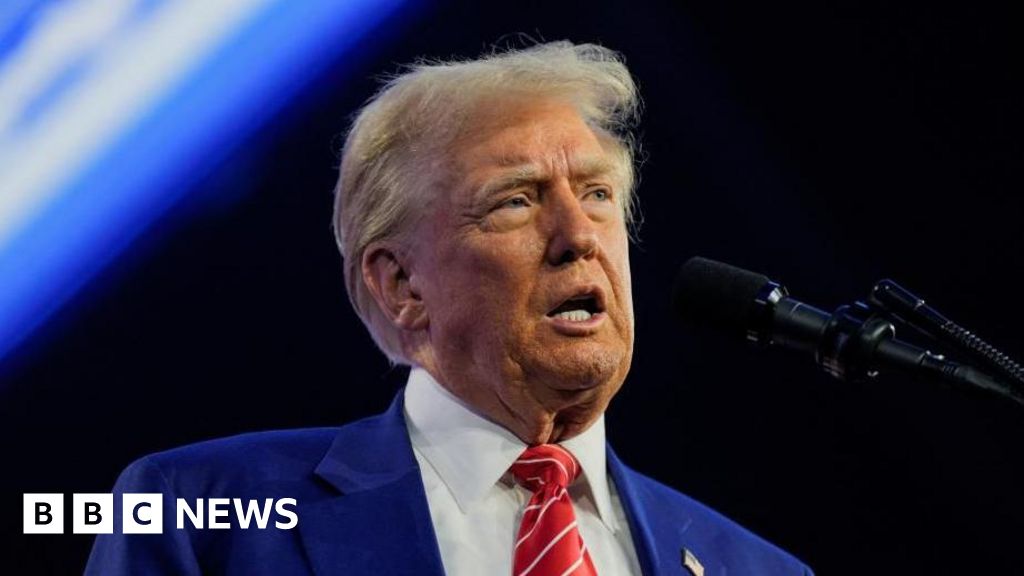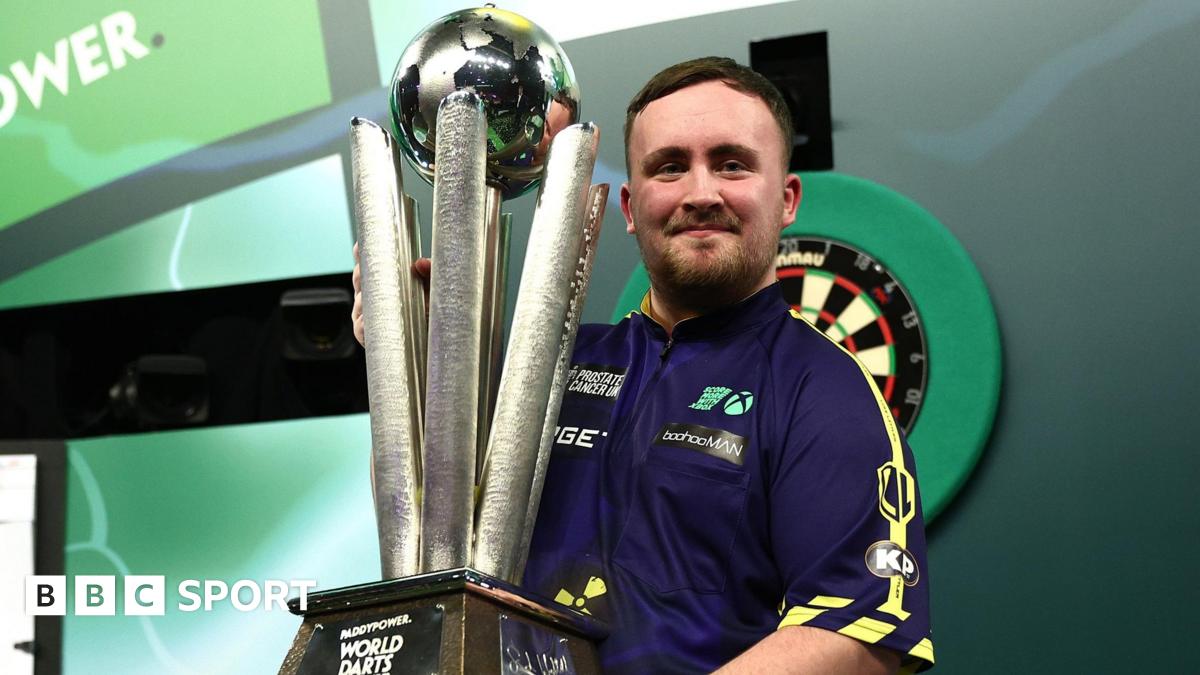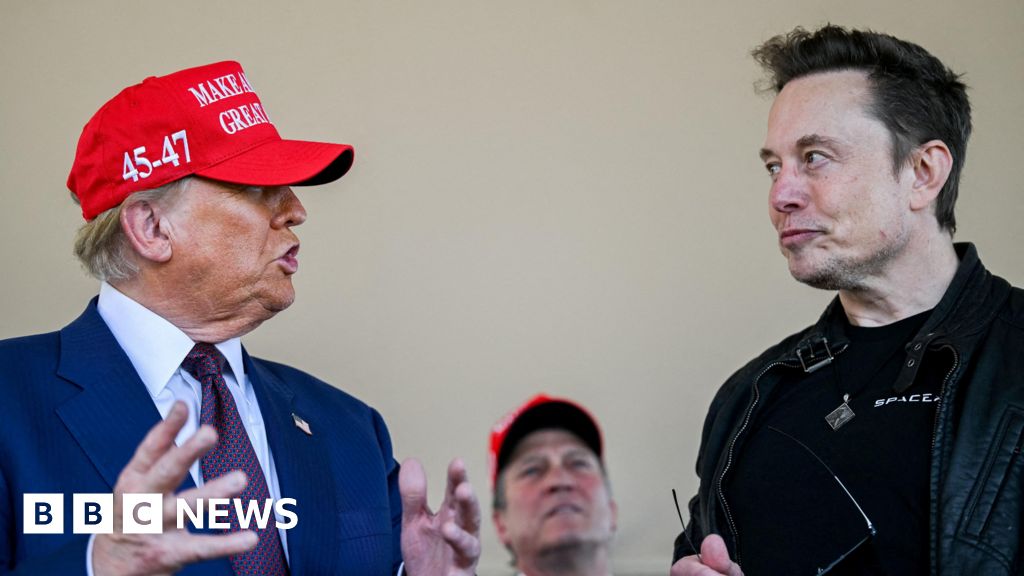 Image source, Getty Images
Image source, Getty Images
By Mark Savage
BBC Music Correspondent
After a week of build-up, The Beatles have released what's been billed as their "final song".
Called Now And Then, it's been 45 years in the making - with the first bars written by John Lennon in 1978 and the song finally completed last year.
All four Beatles feature on the track, which will be the last credited to Lennon, McCartney, Harrison and Starr.
And in a full-circle moment, it's being issued as a double A-side single with their 1962 debut Love Me Do.
This YouTube post cannot be displayed in your browser. Please enable Javascript or try a different browser.View original content on YouTube
The BBC is not responsible for the content of external sites. YouTube content may contain adverts.
The release marks what could be the closing chapter for arguably the greatest band in rock history.
When and where can I hear Now And Then?
Image source, Apple Corps
In the UK, Now And Then had its first play on BBC Radio 2 and 6 Music shortly after 14:00 GMT.
Simultaneously, the song arrived on streaming services like Spotify, Apple Music and Amazon Prime Music.
CD, vinyl and cassette copies will be available the following day. And from 10 November, the song will be included on the newly remastered and expanded versions of The Beatles' Red and Blue greatest hits albums.
What does it sound like?
The original demo has circulated as a bootleg for years. An apologetic love song, it's fairly typical of John Lennon's solo output of the 1970s - in a similar vein to Jealous Guy.
It was finished in the studio last year by Sir Paul McCartney and Sir Ringo Starr. George Harrison will appear via rhythm guitar parts he recorded in 1995, and producer Giles Martin has added a new string arrangement.
"Hearing John and Paul sing the first chorus together, as they lock into the line 'Now and then I miss you' - it's intensely powerful, to say the least," said Rob Sheffield of Rolling Stone magazine.
"I cried like a baby when I heard it," added BBC 6 Music's Lauren Laverne. "Just gorgeous."
When was Now And Then written?
This YouTube post cannot be displayed in your browser. Please enable Javascript or try a different browser.View original content on YouTube
The BBC is not responsible for the content of external sites. YouTube content may contain adverts.
Skip youtube video 2 by The Beatles
Allow YouTube content?
This article contains content provided by Google YouTube. We ask for your permission before anything is loaded, as they may be using cookies and other technologies. You may want to read Google’s cookie policy, external and privacy policy, external before accepting. To view this content choose ‘accept and continue’.
The BBC is not responsible for the content of external sites. YouTube content may contain adverts.
The story begins in 1978, when Lennon recorded a demo with vocals and piano at his home in New York.
After his death, his widow Yoko Ono gave the recording to the remaining Beatles on a cassette that also featured demos for Free as a Bird and Real Love.
Those two songs were completed and released as singles in 1995 and 96, marking The Beatles' first "new" material for 25 years.
The band also attempted to record Now And Then, but the session was quickly abandoned. "It was one day - one afternoon, really - messing with it," producer Jeff Lynne recalled.
"The song had a chorus but is almost totally lacking in verses. We did the backing track, a rough go that we really didn't finish."
In the end, the quality of the recording was considered too poor to salvage. Harrison reportedly called it "rubbish", but McCartney never let go of the idea.
Was artificial intelligence used to finish the song?
During the making of The Beatles' Get Back documentary, director Peter Jackson's film company developed a piece of software that allowed them to "de-mix" muddled recordings of overlapping sounds.
The technology was used last year to create a new mix of the band's album Revolver.
"It has to learn what the sound of John Lennon's guitar is, for instance, and the more information you can give it, the better it becomes," Giles Martin told the BBC.
For Now And Then, the software was able to "lift" Lennon's voice from the original cassette recording, removing the background hiss and the hum of the mains electricity that had hampered previous attempts to complete the song.
In McCartney's words Lennon's voice is "crystal clear" on Now And Then.
A 15-minute documentary broadcast on Wednesday's The One Show, offered a startling illustration of what that means: The thin, ghostly voice of the 1970s suddenly sounds like it was recorded in Abbey Road itself.
"It was the closest we'll ever come to having him back in the room," said Starr. "Far out."
"All those memories came flooding back," added McCartney. "My God, how lucky was I to have those men in my life?
"To still be working on Beatles music in 2023? Wow."
What are the critics saying?
Critics have been broadly positive about Now And Then, with the tGuardian giving it four stars out of five, and calling it "an affecting tribute to the band's bond".
Clash describes the track as beatific, sentimental, and "gloriously contagious", while Rolling Stone says it is "the brilliant final statement the Fab Four - and their fans - deserve".
Most critics seem to agree that the track cannot match a traditionally-recorded Beatles song. The Telegraph, which gave the song three stars, noted that Now And Then "doesn't hit the heights we expect from a great Beatles ballad".
Variety calls the question of whether the song lives up "to the Beatles or their collective solo works' towering legacy" an unfair one. "Of course it doesn't, but it's still an unexpected pleasure," Jem Aswad writes.
What does Sir Paul McCartney think?
Sir Paul said the experience of recording Now And Then was "magical".
"When we were in the studio, we had John's voice in our ears so you could imagine he was just in the next room in a vocal booth or something and we were just working with him again so it was joyful," he told Radio1's Clara Amfo.
"We hadn't experienced that for a long time obviously and then suddenly here we were working with ol' Johnny."
Sir Paul described the song as poignant, and said he wanted fans to take a "loving feeling" away from it.
"That's often what we were trying to do with our records, we were trying to spread love," he said.
"It's John talking about 'I miss you' and stuff like that so, I think emotion, that would be the key word for people to take away from it, 'emotion'."
Will there be a music video?
Image source, Getty Images
Yes, Jackson has created a new video, which is unveiled at 14:00 GMT on Friday.
It will contain previously-unseen footage, including "a few precious seconds" of the earliest known film of The Beatles, provided by original drummer Pete Best and his brother Roag.
Roag said he bought the silent footage from a man who used a cine camera to film the band performing St Paul's Presbyterian Church Hall in Birkenhead in February 1962, eight months before their debut single came out.
Jackson's team have improved the quality and "it looks absolutely fantastic", Roag told BBC News.
It is also the only known footage of the band performing in the leather suits they sported before they became famous.
"The lads are rocking backwards and forwards with guitars, mouths to the microphones, singing," Roag said.
Image source, Roag Best
Image caption,The band played in front of a tinsel backdrop at a Valentine's dance in February 1962
It is also the only video from before Pete Best was sacked and replaced by Ringo Starr in August 1962 - but he is obscured in the footage, his brother said.
"From a family perspective, I went, 'Ah, come on!' One of the guys is actually standing in front of Pete so all you can see is Pete's drum kit and Pete's hands occasionally with the sticks."
Jackson has used about six seconds of the footage in the Now And Then video. The original lasts for almost a minute and will go on show at the Liverpool Beatles Museum, which Roag Best owns.
In a statement, Jackson said he had found other "unseen outtakes in the vault, where The Beatles are relaxed, funny and rather candid".
He added: "We wove the humour into some footage shot in 2023. The result is pretty nutty and provided the video with much needed balance between the sad and the funny."
 (1).png)
 1 year ago
16
1 year ago
16


















